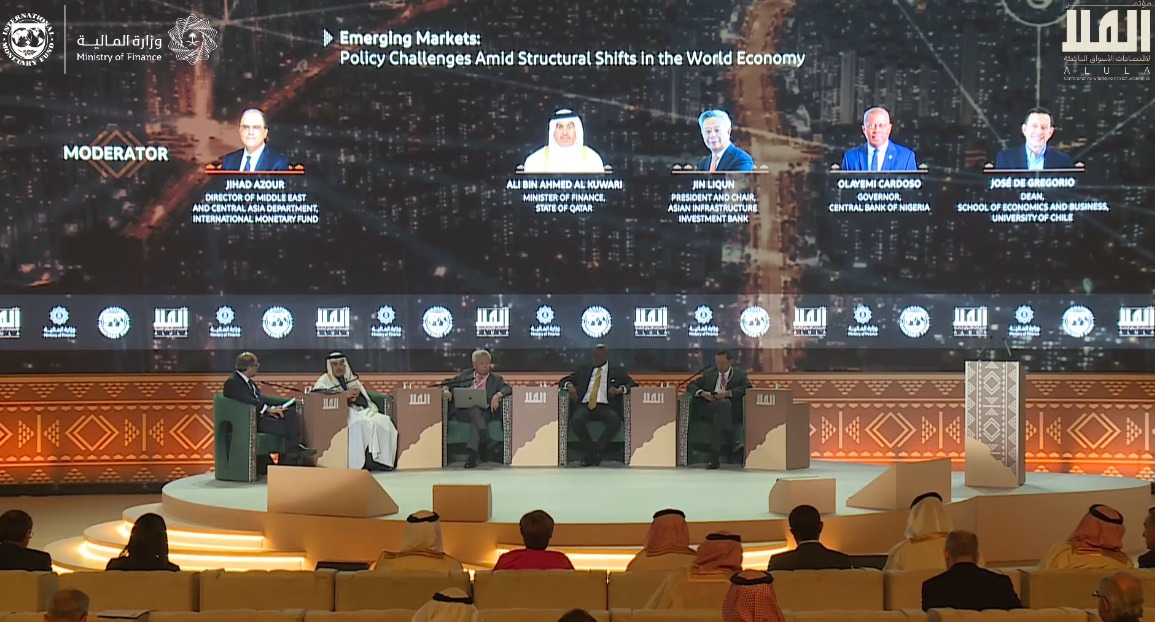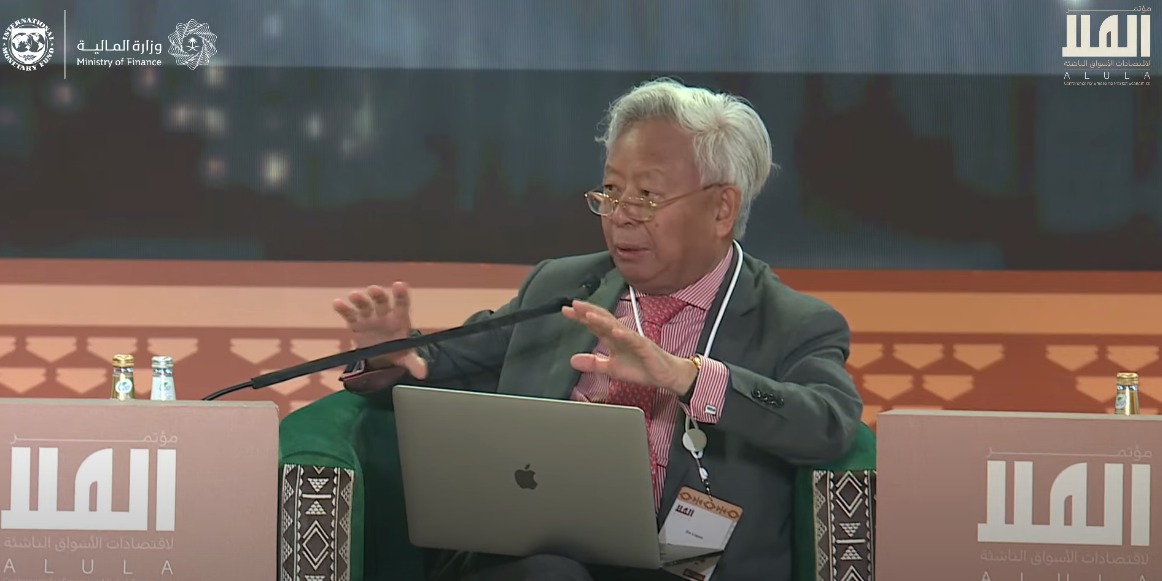CAIRO: Startups in the Middle East and North Africa region have closed Ramadan and started Eid Al-Fitr on a positive note as venture activity continued.
Among the most significant announcements during the holy month was UAE-based online streaming platform OSN+ and the Lebanon-originated music streaming service Anghami Inc.’s successful merger into a unified media entity following the finalization of their transaction.
With the merger, OSN+, owned by Kuwait Projects Co. Holding, now holds a 55.45 percent majority stake in Anghami, valued at $3.69 per share.
The merger, initially announced in November, was finalized in a deal valued at $50 million, marking a considerable consolidation in the regional media landscape.
This development follows the acquisition of a 13.7 percent stake in Anghami by the Kingdom’s media conglomerate MBC Group last month.
Anghami, established in 2011 by Eddy Maroun and Elie Habib, transitioned to public trading on the US NASDAQ last year.
In August, the company bolstered its financial standing with a $5 million investment from Saudi venture capital firm SRMG Ventures.
Despite the merger, Anghami will continue its presence on the NASDAQ, signaling its ongoing commitment to global market participation.
Habib, who is also Anghami’s chief technology officer, will lead the combined entity as the incoming CEO of Anghami, while Joe Kawkabani will remain as OSN Group CEO.
PIF subsidiary SITE set to launch a joint venture with South Korea’s AhnLab
A subsidiary of Saudi Arabia’s Public Investment Fund is set to launch a joint venture with South Korea’s cybersecurity firm AhnLab to enhance and localize digital solutions in the Kingdom.
For this collaboration, PIF’s Saudi Information Technology Co. and its subsidiary SITE Ventures, plan to invest over SR500 million ($133 million) in research and development.
SITE will own a 75 percent stake in the new venture, with AhnLab holding the remaining 25 percent, according to a statement from the latter.
The joint venture is expected to commence operations in the first half of 2024, with SITE’s Ventures also acquiring a 10 percent stake in AhnLab to solidify their partnership.
Saad Al-Aboudi, CEO of SITE, stated that this investment is part of the firm’s strategy to develop and localize cutting-edge cybersecurity technologies in Saudi Arabia and the broader MENA region.
AhnLab’s CEO, Suk-Kyoon Kang, emphasized the venture’s goal of adapting its cybersecurity solutions to meet the specific requirements of the MENA market and focusing on rapid global expansion.
This move aligns with Saudi Arabia’s broader ambitions in the tech sector, including plans to establish a $40 billion artificial intelligence-focused fund to support the growth of chip manufacturers and data centers, which is critical for advancing computing capabilities.
Last February, PIF Governor Yasir Al-Rumayyan expressed Saudi Arabia’s intention to become a global AI hub, reinforcing the Kingdom’s commitment to technological advancement and innovation.
Oman’s Mubashir secures investment from ITHCA Group
Oman’s Mubashir secured an investment from ITHCA Group, an Omani fourth industrial revolution technologies firm, to fuel its expansion and technological enhancement.
Mubashir, a digital out-of-home advertising network based in Oman, is set to extend its reach beyond local markets, backed by ITHCA’s investment.
This financial boost aims to advance Mubashir’s mission of delivering effective regional marketing solutions.
ITHCA Group’s Director of Investments, Ameer Al-Alawi, expressed enthusiasm for Mubashir’s innovative ad tech platform, emphasizing the shift toward data-driven, real-time advertising in the physical world.
Mubashir’s digital network engages millions across Oman with strategically placed screens, offering marketers targeted campaigns using smart data and analytics.
The company’s approach combines advertising with infotainment, catering to diverse consumer interests. ITHCA’s backing signifies a crucial milestone for Mubashir, which is poised for growth in the evolving DOOH marketing sector.
UAE’s fintech Fasset secures VARA license
UAE’s fintech sector is now home to a new contender in the digital asset exchange arena, with Fasset’s app officially launching in the market.
Having secured the Virtual Asset Service Providers license from Dubai’s Virtual Asset Regulatory Authority, Fasset is poised for an ambitious expansion in the UAE.
This VASP license from VARA enables Fasset to offer virtual asset brokerage services from Dubai to a global clientele.
The app caters to novice and seasoned players in real-world investments, providing a platform to broaden their horizons with digital assets.
In an interview with Arab News, Mohammad Raafi Hossain, the founder and CEO of Fasset, detailed the company’s strategic direction post-licensing.
“Fasset is among the first digital asset exchanges to receive a VASP license from VARA in Dubai. This achievement from VARA allows us to serve retail and institutional investors in compliance with regulations, extending our reach not only within the UAE but globally,” Hossain highlighted.
He added: “After our successful debut in Indonesia in 2023, which saw a million customers join our waitlist in just a week, the UAE is now our next strategic market.”
Hossain also underscored that Fasset’s presence extends beyond the UAE, with a substantial portfolio of digital assets licenses in key emerging markets, including Indonesia, Malaysia and Bangladesh as well as Pakistan, and Türkiye.
As explained by Hossain, Fasset’s mission is to democratize the digital asset investment domain, making it accessible to a wide variety of users.
The app is engineered to facilitate a spectrum of transactions in a secure blockchain environment, encompassing the purchase of cryptocurrencies, stablecoins, and even tokenized real-world assets.
Its user-friendly interface and regulatory adherence position Fasset as a frontrunner in meeting the diverse needs of the UAE market.
Looking forward, Hossain outlines Fasset’s ambitious objectives for its UAE operations, which are pivotal to the company’s expansive vision.
The immediate focus is on cultivating brand recognition, refining user experience, and empowering residents to enhance their financial well-being.
The UAE’s multicultural expatriate demographic presents a unique opportunity for Fasset, not just for local market penetration but as a strategic base for regional and global expansion.
Plans are underway to enable seamless cross-border fund transfers among Fasset users, further solidifying the app’s position as a comprehensive digital management and investment solution.
“This will enable Fasset users to not only invest in digital assets, but also transfer funds easily to Fasset users in other countries,” Hossain said.
Furthermore, the company has set strategic plans to empower individuals to access universal financial services and additional opportunities to build and manage their wealth.
“With a roadmap of product features planned for launch over the next few months, Fasset is on the way to become an all-in-one financial super-app that enables users to securely save, invest, earn and move money,” Hossain explained.
“For instance, with a significant expat population, one of the key advantages for customers in the UAE is the ability to transfer funds easily and securely to other Fasset users around the world,” he added.
Hossain highlighted the company’s strategic focus on penetrating emerging markets, with plans to expand operations into the region, specifically targeting countries like Saudi Arabia.

























